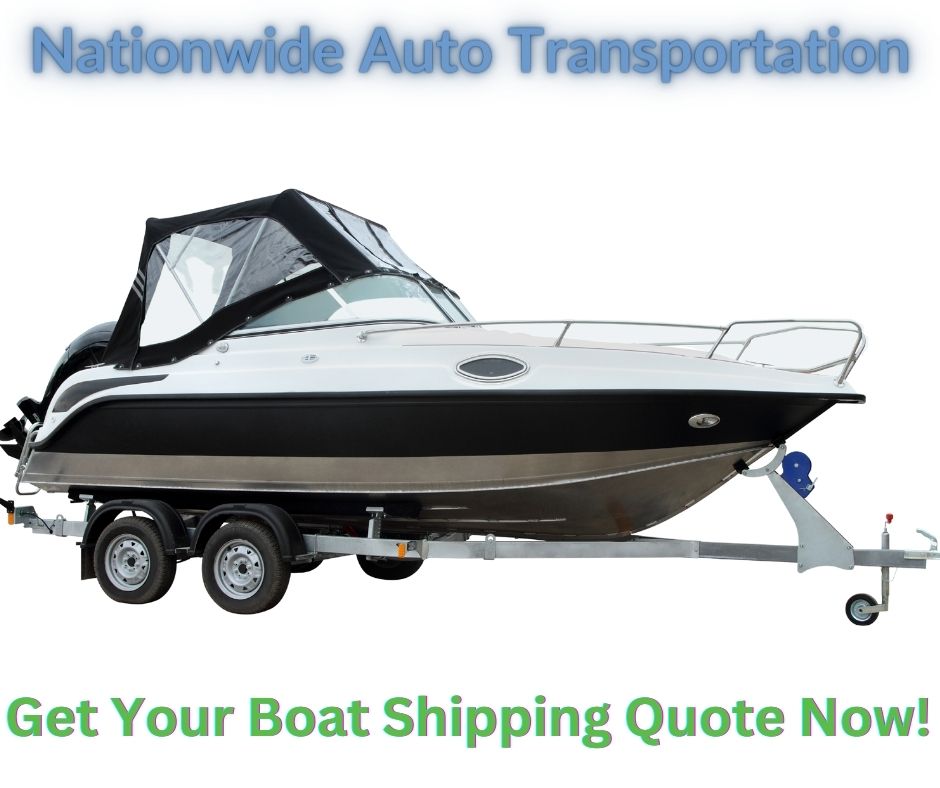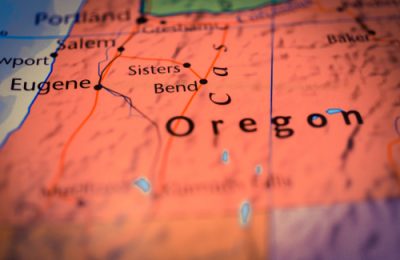
Reading Time: 13 minutes
Professional Boat Transport Services and Boat Transportation Regulations
Welcome to our guide on boat transportation regulations! Whether you own a boat or are interested in transporting one, it’s crucial to understand the regulations involved. In this article, we’ll provide you with valuable information. We explore:
- Why they matter?
- Key rules to be aware of.
- Tips for compliance.
- Permits and licensing.
- Working with professional boat transport services.
- Preparing your boat for transportation.
- Tips for a smooth transport process.
Transporting a boat, whether it’s a small recreational vessel or a larger commercial boat, can be complex. Compliance with regulations is essential for safety, to protect the environment, and avoid legal consequences. Understand and follow these regulations to have a worry-free boat transport experience.
Planning your next maritime adventure but worried about the logistics of shipping your boat? Fear not! At Nationwide Auto Transportation, we’ve compiled an all-inclusive guide to help you navigate the complexities of boat shipping. Whether it’s understanding pricing, safety measures, or choosing the right company, our guide “Reliable Boat Shipping: Your Ultimate Guide to Success” has got all the answers. Dive into our insightful guide to make your boat shipping experience smooth and stress-free! Read more about Reliable Boat Shipping.

Are you ready to learn about boat transportation regulations? This article will help you to comply effortlessly! Now, let’s get started!
Why Boat Transportation Regulations Matter
Boat transportation regulations may not be the most exciting topic, but they are incredibly important for boat owners and enthusiasts. Why is understanding and complying with these regulations important? Well, it is not just about following the rules! It’s also about safety, protecting the environment, and avoiding legal consequences.
Ready to take a closer look at why boat transportation regulations matter?
Ensuring Safety and Security
Boat transportation regulations are in place for safety and security. This is of both the boat being transported, and the people involved in the transportation process.
These regulations often dictate specific requirements for the proper securing of boats during transit, such as using secure tie-downs and covers.
What do you get by complying with these regulations? Well, to start you minimize the risk of accidents and damage to your boat! Don’t forget about the much less risk to yourself and others.
Protecting the Environment | Boat transport guidelines
- Boat transportation can have a significant impact on the environment. More true if not done in compliance with regulations.
- Many regulations aim to protect the waterways and surrounding ecosystems. This is from fuel and chemical spills, as well as invasive species.
- Compliance with these regulations includes properly disposing of hazardous materials. Make sure the boat is properly cleaned and free from pollutants. Adhere to designated transport routes.
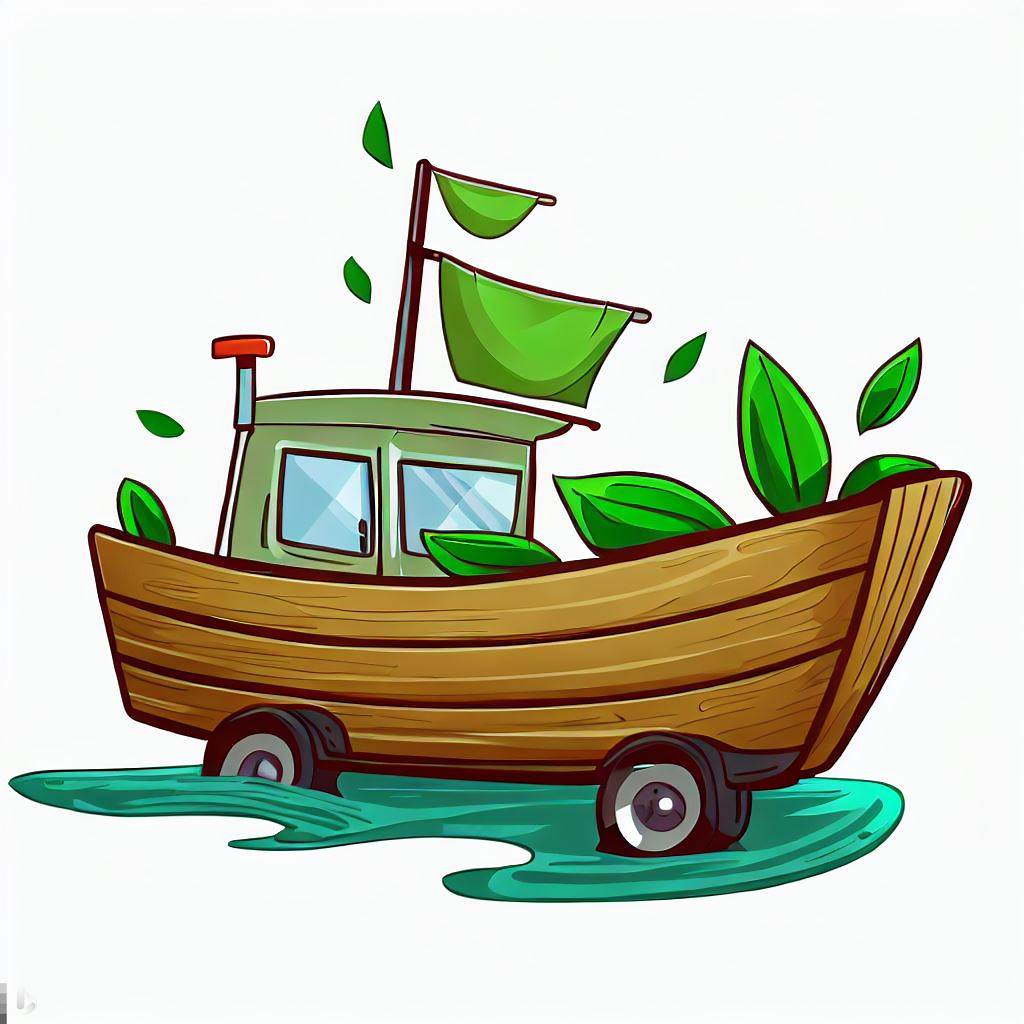
Avoiding Legal Consequences
Non-compliance with boat transportation regulations can result in serious legal consequences and fines.
Familiarize yourself with the specific regulations in your jurisdiction to avoid any legal issues. Know and meet regulations concerning (registration, documentation, size, weight, safety equipment, and maintenance) standards.
Being a responsible boat owner or enthusiast means understanding and adhering to boat transportation regulations. As can be seen, this keep everyone safe and avoids legal repercussions. Still, it also safeguards the environment and helps maintain our waterway’s sustainability.
Key Boat Transportation Regulations
When it comes to transporting your boat, it’s important to understand and comply with the various regulations in place. Get to know the following key boat transportation regulations. They can assist you with smooth and hassle-free boat transport.
National Marine Manufacturers Association (NMMA)
- The National Marine Manufacturers Association (NMMA) is a leading industry association representing boat, marine engine, and accessory manufacturers. They are committed to the growth of the marine industry and offer resources, research, and events to promote boating and support businesses. Members benefit from up-to-date information on regulations, compliance, and other industry-relevant topics.
Registration and Documentation Requirements
One of the essential regulations for boat transportation is registration and documentation. Just like with any vehicle, your boat needs to be properly registered and documented before it can be transported. This includes!
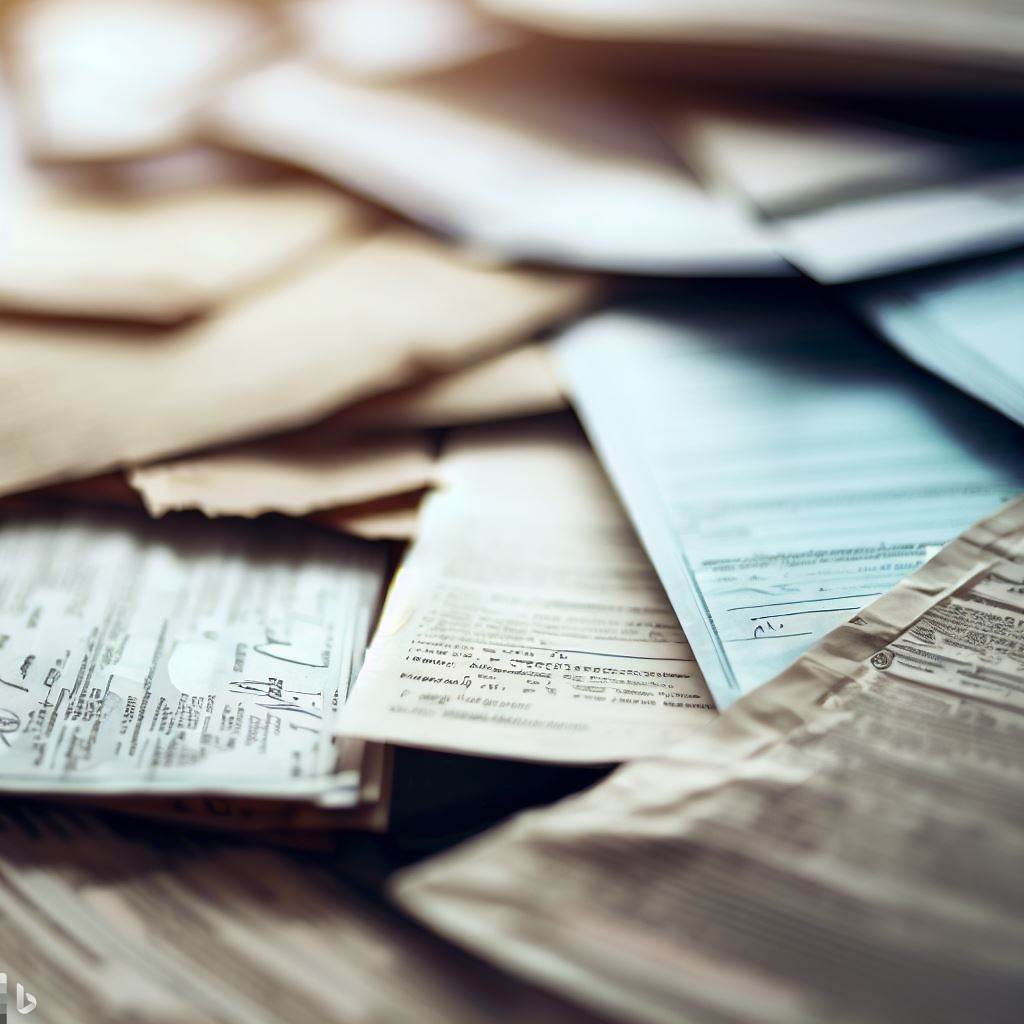
- State Registration. Most states require boats to be registered with the appropriate state agency. Make sure your boat is registered and that you have the necessary documentation.
- Title and Proof of Ownership. You will also need to have the title and proof of ownership for your boat. This helps establish that you are the rightful owner of the boat and have the authority to transport it.
- Trailering Permits. Depending on the size and weight of your boat, you may need to obtain trailering permits for transport on public roads. These permits guarantees that your boat is being transported safely and legally.
Size and Weight Restrictions
Another important aspect of boat transportation regulations is size and weight restrictions. These regulations vary depending on the state and the type of boat you have. Be aware of the following!
- Maximum Width. Each state has its own maximum width limit for boats being transported on public roads. Make sure your boat complies with these limits to avoid any issues during transportation.
- Maximum Height. Similarly, there is a maximum height restriction for boats being transported. Measure the height of your boat. Include added accessories.
- Maximum Weight. There are also weight limitations for boats being transported. Exceeding the maximum weight can lead to fines or even the need for additional permits.
Safety Equipment and Maintenance Standards
To guarantee the safety of your boat during transportation, it’s important to comply with safety equipment and maintenance standards. Some of the key regulations in this area include:
- Proper Securing. Your boat must be properly secured to the trailer or transport apparatus. This includes using appropriate tie-downs, straps, and chains to keep it in place during transit.
- Lights and Signals. Your boat must have functioning lights and signals to indicate its presence on the road during transportation. This helps for the safety of both you and other drivers.
- Maintenance Checks. Before transporting your boat, perform a thorough maintenance check. This is to check that all essential components, such as brakes, tires, and axles, are in good working order. Regular maintenance helps prevent accidents and assists with a smooth boat shipping process.
Adhere to international boat transportation regulations to transport your boat safely and legally. Compliance protects your boat and all those involved in the process.
International Maritime Organization’s regulations on boat transport. Get acquainted with global regulations and guidelines on boat transport.
Compliance Tips for Boat Owners
Does it matter if you’re transporting your boat for a short distance or across borders? Not really! Adhering to regulations firstly ensures the safety of your vessel! Furthermore, it protects the environment, and helps you avoid legal consequences.
With that in mind, here are some helpful compliance tips for boat owners!
Stay Informed and Updated
Boat transportation regulations can vary by state, country, and even by specific waterways. It’s crucial to stay informed and updated on the latest rules and regulations to ensure compliance.
Here’s how you can stay in the know:
- Research. Take the time to research and familiarize yourself with the regulations applicable to your specific transport route.
- Government Websites. Government agencies responsible for maritime rules often have websites with detailed information on boat transport regulations. Visit these websites regularly to stay updated on any changes or new requirements.
- United States Coast Guard (USCG) – Boating Safety Division! Provides a wealth of information on regulations and requirements for boat transport in the United States. It offers detailed guides on topics such as boating laws, navigation rules, and safety equipment standards. Regularly visiting this website will help you stay informed and compliant with the latest regulations.
- Industry Associations. Join industry associations related to boating and transportation. They can provide you with access to valuable resources. Including, up-to-date information on regulations and compliance guidelines.
Maintain Proper Documentation
Proper documentation is essential when transporting your boat. Not only does it help you comply with regulations, but it also ensures a smoother transportation process.
- Registration and Documentation. Ensure that your boat is properly registered. Have all the necessary documentation. Ownership certificates, insurance papers, and any required permits or licenses.
- Keep Copies. Make multiple copies of your boat’s documentation. Keep these copies in a safe and easily accessible place.
- Verification. Before transporting your boat, verify that all your documentation is up to date and valid. This includes checking the expiration dates of permits and licenses.
Conduct Regular Safety Checks
Safety should always be a top priority when it comes to transporting your boat. Regularly conduct safety checks. This will not only help you comply with regulations but also assist the well-being of your vessel.

Here are some safety measures to consider.
Equipment Inspections. Inspect all safety equipment on board!
- life jackets
- fire extinguishers
- navigation lights
- and sound signals.
- Check that they are in good working condition and meet the required standards and regulations.
- Maintenance and Repairs.
- Regularly maintain and service your boat to address any potential safety issues. Keep a record of these maintenance activities and ensure that they are up to date.
“Compliance with boat transportation regulations helps ensure the safety of your vessel, protects the environment, and helps you avoid legal consequences.”
BoatUS’s Transportation Guide. Comprehensive guide on various aspects of boat transportation in the USA.
Understanding Permits and Licensing
Ok! You’re planning to transport your boat! As i have noted, it’s important to understand the required permits and licensing. Different jurisdictions have different regulations. In this section, we will explore the various types of permits and licensing that may be needed for boat transportation.
Temporary Transport Permits
When transporting your boat, especially across state or international borders, you may need to obtain a temporary transport permit. This permit allows you to legally move your boat from one location to another for a specific period of time. Temporary transport permits are typically issued by government transportation agencies. They may require certain documentation, such as proof of ownership and insurance.
Commercial Boat Transport Licensing
What if you are planning to transport boats as part of a business or as a professional service? Then, you will likely need to obtain a commercial boat transport license. This license states that you meet certain legal requirements and have the necessary expertise to safely and legally transport boats. The specific licensing requirements may vary depending on your location.
International Boat Transport Regulations
If you are transporting your boat across international borders, additional regulations and permits may apply. Each country has its own customs, import/export, and boat transportation regulations that must be followed. Research and comply to avoid delays, penalties, and legal issues. Work with a professional boat transport service experienced in international transportation! Doing this can help navigate these complex regulations.
“Understand and comply with the necessary permits and licensing for boat transportation! This helps to avoid legal issues and ensure a smooth process.”
It’s always better to be proactive and ensure you have everything in order before embarking on a boat transportation journey.
American Boating Association (ABA)
- The American Boating Association (ABA) is a renowned organization. It advocates for the interests of recreational boaters. Membership with ABA gives you access to a myriad of resources. Including safety guidelines, legislative updates, and information on regulations that affect the boating community. They play a vital role in shaping policies and ensuring the welfare of boat enthusiasts.
In the next section, we will explore the benefits of working with professional boat transport services. Then we check out what to consider when choosing a provider.
Working with Professional Boat Transport Services

When it comes to boat transportation regulations, there are a few key factors to consider. One of the most important decisions you will need to make is whether to hire a professional boat transport service. These experienced and specialized companies can handle the logistics of moving your boat safely and efficiently.
Here are some tips to help you navigate the process of working with professional boat transport services!
Choosing a Licensed and Insured Provider
When you are looking for a boat transport service, always choose a licensed and insured company. This ensures that they have met the necessary legal requirements and have the appropriate insurance coverage to protect your boat during transit. These credentials give you peace of mind knowing that your valuable asset is in capable hands.
Here are a boat-load of articles for the maritime mensch!
Understanding Liability and Insurance Coverage
Before finalizing your agreement with a boat transport service, be sure to carefully review their liability and insurance coverage. Clarify any questions you may have regarding their policies and ensure that you are comfortable with the level of protection offered. It is also a good idea to check if your own insurance policy covers your boat during transit.
Here is your boat shipping insurance options lifeline! Boat Shipping Insurance Options | Your NAT Guide
Vehicle and Equipment Requirements
Professional boat transport services have specialized vehicles and equipment designed to handle the unique needs of boat transportation. Before hiring a company, ask about the type of vehicles and equipment they use. Check that their equipment is suitable for the size and weight of your boat. This will help you with a smooth and secure transportation process.
With these tips in mind, you can confidently choose a professional boat transport service that meets you, and your boat’s shipping needs! By entrusting your boat to experienced professionals, you can focus on other aspects of your move or journey!
“Work with a licensed and insured boat transport service. Enjoy peace of mind, knowing that your boat is protected during transit.”
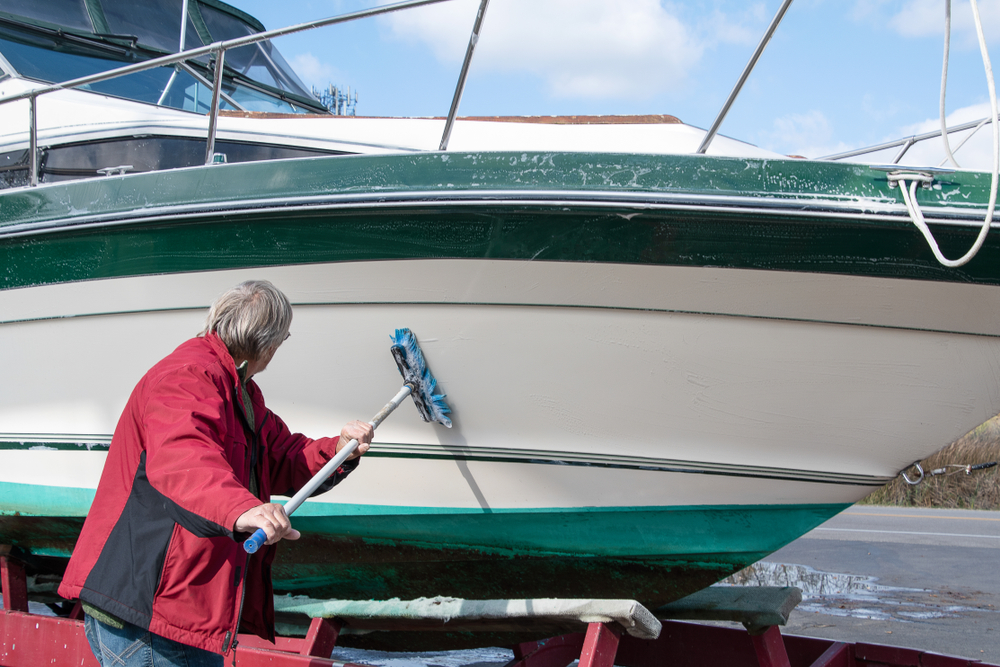
Getting Your Boat Ready for Its Journey |
Boat Transportation Regulations Made Easy
Transporting your beloved boat to a new location is an exciting adventure! However, it’s important to follow boat transportation regulations to ensure a smooth and hassle-free process. With a little preparation, you can protect your boat from any potential damage and comply with all the necessary rules.
Here’s everything you need to know about preparing your boat for transportation!
Spruce Up Your Boat
Before your boat hits the road or water, give it a good cleaning inside and out.
- Not only will it make your boat look its best, but it’ll also prevent any loose items or debris from causing trouble during transit.
- Clear out any personal belongings, fishing gear, and fancy gadgets from the boat.
- Don’t forget to secure any loose parts like seat cushions or removable accessories.
Say Goodbye to Water and Fuel
Boat transportation regulations often require you to drain all the water and fuel from your boat. This is for your safety and to prevent any leaks or spills during transportation.
- Empty all the freshwater tanks, hot water heaters, and any other water-containing systems. Similarly, either drain the fuel tanks or bring them down to a safe level. By doing so, you’ll be playing by the rules and avoiding any unwanted surprises.
Get Your Papers in Order
Before your boat sets sail on its transportation journey, make sure you have all the necessary documentation and permits in hand. It’s always a good idea to make multiple copies of these important documents and keep them in a safe place for easy access during transportation.
Is it worth the time to properly prepare your boat for transportation? Well, you’re not only looking after its safety, but also avoiding any potential delays or legal issues. So, follow these simple steps, comply with boat transportation regulations, and get ready to embark on a smooth and secure journey to your boat’s new destination!
Tips for a Smooth Boat Transport Process
Are you planning to transport your boat, whether it’s for a short distance or a long-distance journey? If yes, you want to ensure a smooth and hassle-free experience, right?
Here are some tips for smooth sailing during boat shipping:
Communicate Clearly with the Transport Service
Communication is key when it comes to ensuring a smooth boat transport process. Make sure you provide detailed information to the transport service about your boat. Include its dimensions, weight, and any special handling requirements. Be sure to discuss pickup and delivery locations, as well as any specific timing constraints. Clear communication will help the transport service plan and execute the transportation process more efficiently.
To communicate with our team of professionals, simply click HERE!
Plan Ahead for Load and Delivery Dates
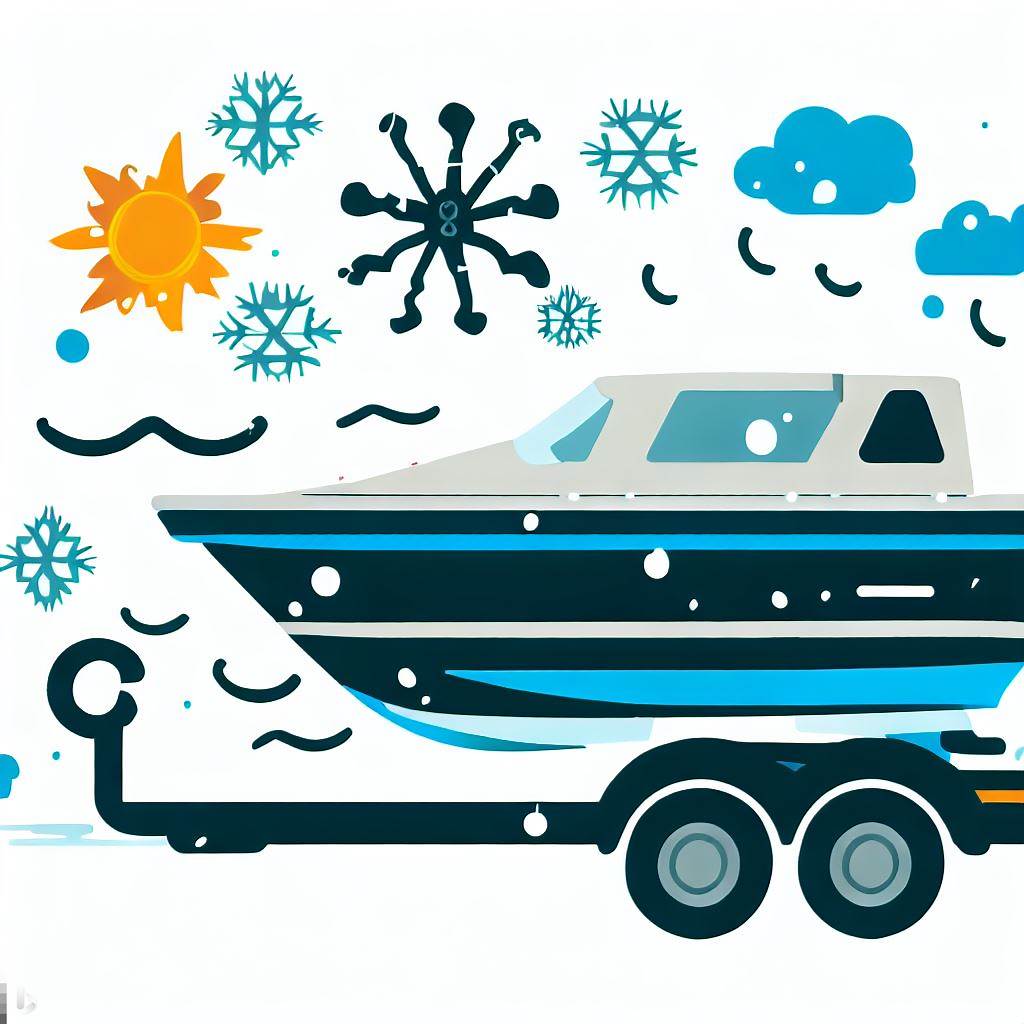
It’s important to plan ahead and coordinate the load and delivery dates with the boat transport service. Work together to determine the best dates and times for pickup and drop-off.
Take into consideration any weather conditions or potential scheduling conflicts! This can help minimize delays and ensure a smooth transition.
Secure Additional Protection for Fragile Items
If you have fragile items on your boat, such as electronics or artwork, consider securing and protecting them during transportation. This could involve removing valuable items and storing them separately or using protective wrapping materials to prevent damage. Discuss these concerns with the transport service to determine the best course of action.
Follow these tips to see that your boat transport process goes smoothly! What’s more, your boat will arrive at its destination safely, and in good condition.
Helpful link
World Shipping Council’s Safe Transport Recommendations. Understand the importance of safety during boat transportation and the best practices recommended by experts.
Smooth Sailing | Your Guide to Boat Transport Rules and Regulations
Understand and comply with boat transportation regulations. It is essential for boat owners and transport service providers alike. By adhering to these regulations, we can ensure the safety and security of both the vessel and the environment! Not just that, but also avoiding any legal consequences that may arise from non-compliance.
To summarize the key points discussed in this article
- Boat transportation regulations: keeping you and your boat safe and legal.
- Key regulations: registration, size and weight restrictions, safety equipment, and maintenance standards
- Stay up-to-date: maintain proper documentation and conduct regular safety checks
- Permits and licensing: understanding temporary permits, commercial licensing, and international regulations
- Choose wisely: work with licensed and insured professional boat transport services
- Prepare for the journey: clean and secure your boat, drain water and fuel, and gather necessary documentation
- Tips for a seamless transport: communicate clearly, plan ahead, and protect fragile items
- Compliance equals responsibility: ensure the safety of your boat, others, and the environment
- Peace of mind: trust professional boat transport services for a safe and efficient journey
Nationwide Auto Transportation | Professional Boat Transport Services
If you’re looking for a reliable and professional boat transport service, Nationwide Auto Transportation is here to help.
With our seamless door-to-door service and years of experience in the industry, we ensure that your boat is transported safely and securely. Contact us today at Nationwide Auto Transportation to get a quote and experience our top-notch service.
Frequently Asked Questions
What are the main boat transportation regulations I should be aware of?
The main boat transportation regulations include proper securing of the boat during transport. Also, adhere to weight and size restrictions, obtain required permits and licenses. Follow specific regulations for transporting hazardous materials if applicable.
Do I need a special license to transport a boat?
In most cases, you do not need a special license to transport a recreational boat. However, it is essential to have a valid driver’s license. Check that the transportation vehicle meets all legal requirements for towing and carrying the boat.
Are there any weight and size restrictions for boat transportation?
Yes, weight and size restrictions for boat transportation vary by jurisdiction. It is crucial to check the specific regulations in your area or the areas you plan to transport the boat through. Exceeding these restrictions may require special permits or alternative transportation methods.
What are the requirements for transporting a boat with hazardous materials?
Do you plan to transport a boat that contains hazardous materials such as fuel, batteries, or other chemicals? Then you must comply with additional regulations for handling and labeling these materials. It is vital to consult the relevant authorities or transportation agencies to ensure compliance.
How can I ensure compliance with boat transportation regulations?
- Carefully research and understand the local, regional, and national regulations that apply to your specific situation.
- Inspect and maintain your boat.
- Follow proper loading and securing procedures.
- Obtain necessary permits and licenses.
- Consult with transportation experts if needed.
